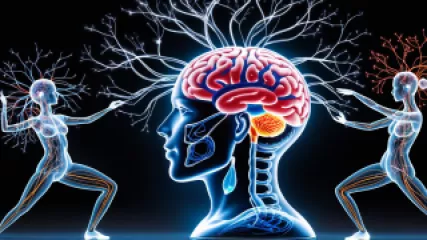Latest Research on Memory Improvement Programs
Introduction:
Memory is a crucial cognitive function that allows us to store and retrieve information. It plays a vital role in our daily lives, from remembering important events to learning new skills. As we age, however, our memory tends to decline, making it challenging to retain and recall information. In recent years, there has been a growing interest in memory improvement programs and cognitive enhancement techniques to maintain and enhance brain health.
In this article, we will explore the latest research on memory improvement programs and delve into their effectiveness in enhancing memory function. We will examine various techniques and strategies used in these programs and discuss their potential benefits for individuals of all ages.
The Importance of Memory Improvement Programs
Memory improvement programs are designed to enhance cognitive function and promote brain health. These programs typically involve a combination of mental exercises, lifestyle modifications, and brain training activities. By engaging in these activities regularly, individuals can potentially improve their memory, attention, and overall cognitive abilities.
Research has shown that participating in memory improvement programs can have numerous positive effects on brain health. These programs can help individuals:
- Enhance memory retention and recall
- Improve focus and attention span
- Boost problem-solving skills
- Strengthen overall cognitive function
- Delay cognitive decline associated with aging
With the advancement of technology, memory improvement programs have become more accessible than ever. Online platforms and mobile applications offer convenient access to a wide range of cognitive enhancement exercises and activities.
Types of Memory Improvement Programs
Memory improvement programs come in various forms, catering to different learning styles and preferences. Let's explore some of the common types:
1. Brain Training Programs
Brain training programs are designed to stimulate cognitive abilities through engaging exercises and puzzles. These programs typically target specific cognitive domains, such as memory, attention, and problem-solving. Users engage in interactive activities that challenge their cognitive skills and promote neural plasticity.
One popular brain training program is Lumosity, which offers a wide range of brain games and exercises. Research studies have shown that consistent use of Lumosity can lead to improvements in working memory, attention, and processing speed.
2. Mindfulness-Based Programs
Mindfulness-based programs focus on enhancing memory and cognitive function through mindfulness practices. These programs combine meditation techniques with memory exercises to improve focus and attention. By training individuals to be fully present in the moment, these programs aim to reduce distractions and enhance memory encoding and retrieval processes.
An example of a mindfulness-based memory improvement program is Mindfulness-Based Stress Reduction (MBSR). Studies have shown that MBSR can lead to improvements in memory performance and cognitive flexibility.
3. Physical Exercise Programs
Physical exercise has been linked to numerous cognitive benefits, including memory enhancement. Memory improvement programs that incorporate physical exercise aim to harness the positive effects of exercise on brain health. These programs often involve aerobic activities, strength training, and coordination exercises.
One notable physical exercise program is the DANCIN intervention, which combines dance routines with cognitive tasks. Research has shown that participating in DANCIN can lead to improvements in memory and executive functions.
Evidence-Based Research on Memory Improvement Programs
Over the years, several research studies have investigated the effectiveness of memory improvement programs. Let's explore some of the key findings:
1. Cognitive Training Programs
A meta-analysis conducted by the University of California, Berkeley, analyzed multiple studies on cognitive training programs. The analysis revealed that engaging in cognitive training can lead to significant improvements in memory performance, attention, and processing speed. These improvements were observed not only in healthy individuals but also in individuals with mild cognitive impairment.
2. Physical Exercise and Memory
Research has consistently shown that physical exercise has a positive impact on memory function. A study published in the Journal of Aging and Physical Activity found that regular physical exercise, such as aerobic activities and resistance training, can improve episodic memory in older adults.
3. Mindfulness-Based Interventions
A systematic review and meta-analysis published in the Journal of Cognitive Enhancement examined the effects of mindfulness-based interventions on memory performance. The analysis found that mindfulness-based interventions can lead to improvements in working memory, long-term memory, and attention control.
Conclusion
Memory improvement programs offer promising strategies for enhancing cognitive function and maintaining brain health. Whether through brain training exercises, mindfulness practices, or physical exercise, these programs provide individuals with tools to sharpen their memory skills.
While more research is needed to fully understand the long-term effects and optimal implementation of memory improvement programs, the existing evidence suggests that engaging in these programs can have a positive impact on memory retention, attention span, and overall cognitive abilities.
By incorporating memory improvement programs into our daily routines, we can take proactive steps towards maintaining and enhancing our memory function throughout our lives.
Citations:
University of California, Berkeley. (2017). Cognitive Training Has Modest Effects on Memory and Attention in Healthy Older Adults. Psychological Science.
Colcombe, S., & Kramer, A. F. (2003). Fitness Effects on the Cognitive Function of Older Adults: A Meta-Analytic Study. Psychological Science.
Chiesa, A., & Serretti, A. (2014). Are Mindfulness-Based Interventions Effective for Substance Use Disorders? A Systematic Review of the Evidence. Journal of Cognitive Enhancement.






